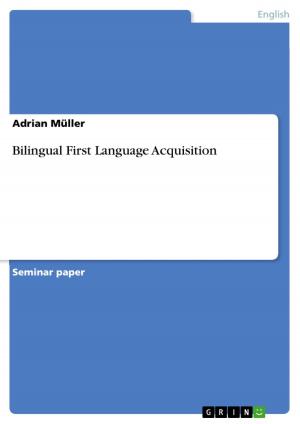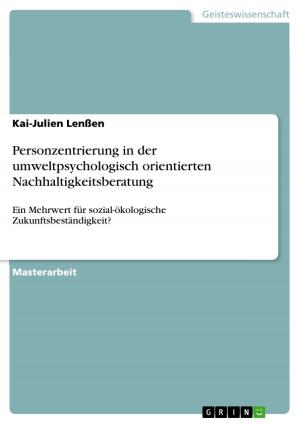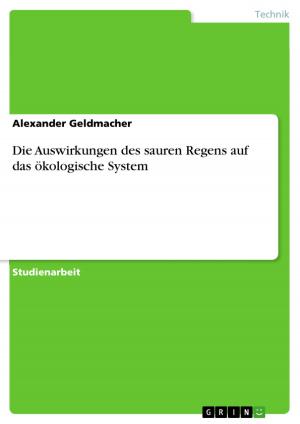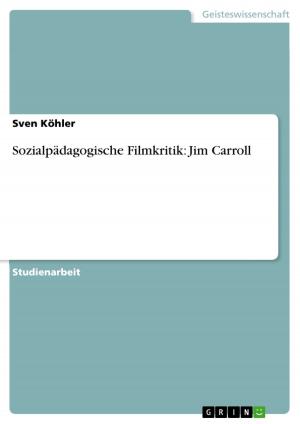The Plausible Veracity of Life Profligacy among Secondary School Teenagers
A case study of East African countries
Nonfiction, Reference & Language, Education & Teaching, Educational Theory, Educational Psychology| Author: | Edward Wafula | ISBN: | 9783656923725 |
| Publisher: | GRIN Verlag | Publication: | March 19, 2015 |
| Imprint: | GRIN Verlag | Language: | English |
| Author: | Edward Wafula |
| ISBN: | 9783656923725 |
| Publisher: | GRIN Verlag |
| Publication: | March 19, 2015 |
| Imprint: | GRIN Verlag |
| Language: | English |
Research Paper (undergraduate) from the year 2015 in the subject Pedagogy - Pedagogic Psychology, grade: 'B', Atlantic International University (SOCIAL AND HUMAN STUDIES), course: EDUCATION, language: English, abstract: This course is outlined on three major principles: examining schools teenagers' hedonism, health education, analysis of developmental stages in learning, and theory analysis for instance, behavior theories. Further, the course integrates evaluation of youth cognitive and affective aspects in education. Secondary school teenagers are categorized as the energetic and the nation's manpower in improving its economy. However in the 21st century, these youths are encountering challenges based on wrong hedonistic values. It about this licentiousness that Kelly (2008:134) examines a report published by the World Bank in April 2002, on; Education and HIV/AIDS as 'A window of Hope' where the UNAIDS executive Director, Peter Piot insisted that: 'We must adopt cross sectoral strategies for fighting HIV/AIDS, one that take full advantage of the benefits of education and help to create a healthy and cohesive society.' There are several reasons why the World Bank could rightly refer to education as a window of hope in relation to heterogeneous behavior. First school education has been shown to reduce hedonistic behavior prevalence rate among young people.
Mr. Wafula is a Kenyan with passion for both extracting and disseminating knowledge. Born in Nabulooli, a simple village in Bungoma county in Western Kenya, his accomplishments and achievements are centered in pedagogical discourses. However, his ambition is ultimately to foster change in education sectors through scientific approaches. Nonetheless, Wafula believes that change through knowledge is a fountain from models. With doctorate knowledge, his contribution of knowledge is globally weighed through several academic and professional publications that he has been able to publish with global professional publishers. These include Thesis & dissertations, professional papers and project papers presented on different issues with a global agenda in various workshops. Currently, he is a research consultant on curriculum change and educational innovation.
Research Paper (undergraduate) from the year 2015 in the subject Pedagogy - Pedagogic Psychology, grade: 'B', Atlantic International University (SOCIAL AND HUMAN STUDIES), course: EDUCATION, language: English, abstract: This course is outlined on three major principles: examining schools teenagers' hedonism, health education, analysis of developmental stages in learning, and theory analysis for instance, behavior theories. Further, the course integrates evaluation of youth cognitive and affective aspects in education. Secondary school teenagers are categorized as the energetic and the nation's manpower in improving its economy. However in the 21st century, these youths are encountering challenges based on wrong hedonistic values. It about this licentiousness that Kelly (2008:134) examines a report published by the World Bank in April 2002, on; Education and HIV/AIDS as 'A window of Hope' where the UNAIDS executive Director, Peter Piot insisted that: 'We must adopt cross sectoral strategies for fighting HIV/AIDS, one that take full advantage of the benefits of education and help to create a healthy and cohesive society.' There are several reasons why the World Bank could rightly refer to education as a window of hope in relation to heterogeneous behavior. First school education has been shown to reduce hedonistic behavior prevalence rate among young people.
Mr. Wafula is a Kenyan with passion for both extracting and disseminating knowledge. Born in Nabulooli, a simple village in Bungoma county in Western Kenya, his accomplishments and achievements are centered in pedagogical discourses. However, his ambition is ultimately to foster change in education sectors through scientific approaches. Nonetheless, Wafula believes that change through knowledge is a fountain from models. With doctorate knowledge, his contribution of knowledge is globally weighed through several academic and professional publications that he has been able to publish with global professional publishers. These include Thesis & dissertations, professional papers and project papers presented on different issues with a global agenda in various workshops. Currently, he is a research consultant on curriculum change and educational innovation.















